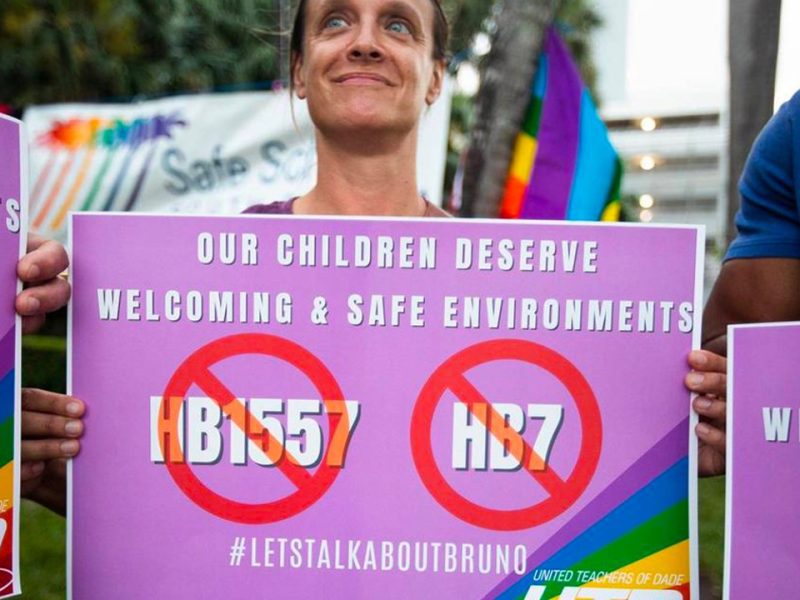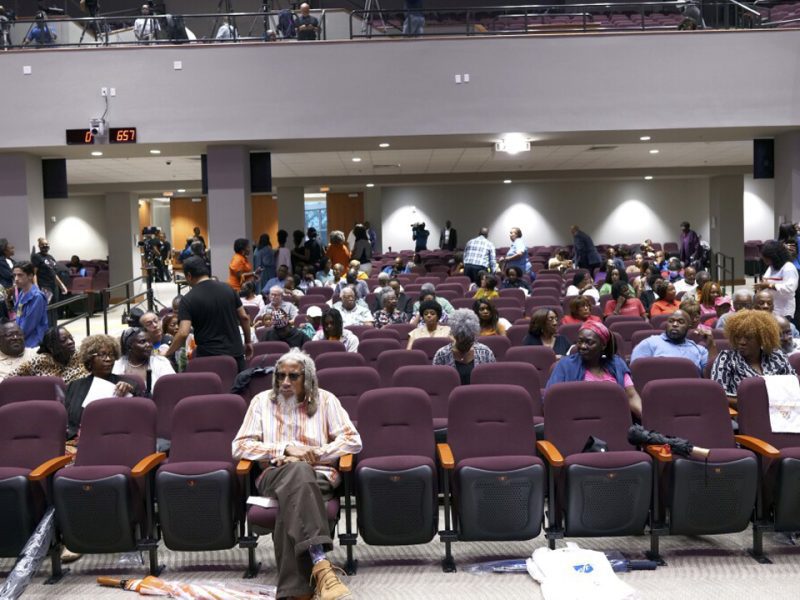Teacher contracts: Teams close in on salary deal, but stuck on pay for veteran teachers
Florida Today | by Eric Rogers | September 30, 2020
Brevard Public Schools and the Brevard Federation of Teachers union are closer to a deal on pay hikes but remain stuck on compensation for veteran educators under a state mandate that prioritizes early-career teachers.
Following consecutive bargaining sessions Monday and Tuesday, the school district agreed to plug a hole in a $500 million allocation championed this year by Florida Gov. Ron DeSantis that dramatically raises the base salary for classroom teachers but leaves out ranks of other educators, including media specialists and school counselors.
The law governing the use of the funds creates a two-tiered salary schedule that would have seen new Brevard teachers start about $7,000 ahead of their colleagues outside the classroom, the union has argued.
District negotiators on Monday agreed to commit over $980,000 in recurring funds alongside the state allocation to raise the pay for those employees to the district’s proposed base salary of $46,550.
Union leaders applauded the move but blasted the district over what they called a “refusal to budge” on raises for teachers making over the minimum salary, including some that have been with the district for decades.
The district has proposed a $710 bump for teachers making over the proposed minimum — up from a previous offer of $709 — against the union’s current demand of $950, down from $1,300.
The district’s offer would mean a raise of at least 2% for little less than half of teachers and 1.35% for the rest, a district spokesman said in a news release.
“We are thrilled that our early career educators and those educators under the new minimum salary will have their salaries raised to $46,550. This is a step in the right direction to elevate the education profession,” union President Anthony Colucci said in a statement. “However, to leave our veteran teachers so far behind is not in the best interest of this district or the students it serves. Experience matters.”
Brevard Public Schools received about $11 million from the $500 million state allocation, but there are limitations on how that money can be spent. Under the law, 80% (about $9 million) must be spent on raising the minimum base pay as close as possible to the state’s target of $47,500. Only the remaining 20% (about $2 million) can go to non-classroom and veteran teachers.
Union leaders said the district’s proposal for mid- to late-career teachers — which includes no additional funds over the 20% pot — could actually lead to a de facto pay cut for teachers forced to remain on a higher-cost health insurance plan negotiated this year due to rising medical costs.
“There is no way to make this plan from the governor fair for veteran teachers,” union Vice President Vanessa Skipper told FLORIDA TODAY.
“There are two plans, so someone could choose the ‘silver’ plan and see no increase at all,” Skipper said. “We would just hate to see an individual who is forced to stay on a higher medical plan due to circumstance and forces outside their control not get enough of a raise to where they’re forced to take a pay cut.”
The district’s new “silver plan” carries no additional costs but eliminates coverage of non-emergency services through Health First doctors and hospitals. Employees on the “gold plan” retain Health First coverage but will see their monthly premiums and other costs go up.
The hikes are necessary to help cover a deficit in the school district’s state-required insurance fund balance, which has fallen short this year due to rising medical costs and six years without a premium increase. Brevard Public Schools has agreed to a one-time infusion of $5 million to help bridge the insurance fund gap and an additional $4.7 million in annual contributions.
Karyle Green, the district’s chief negotiator and head of labor relations, previously told FLORIDA TODAY the district was not offering to supplement the allocation due to budget uncertainties amid COVID-19.
“Enrollment fluctuations were down about 3,000 students. We lost a lot to home school, we know that,” Green said previously. “Knowing what little we have left doesn’t provide a lot of money that isn’t going to be utilized or planned for cuts… if funding goes down in January” due to enrollment.
“We know we have an extremely hardworking workforce all across the district and we want to do what we are fiscally able to do for our employees,” she said.
Skipper said Tuesday’s stalemate had the potential to result in impasse if the sides were not able to reach agreement at the next session, which will be livestreamed Oct. 7 on the union’s social media platforms beginning at 4 p.m.
“We are not there yet,” Skipper said, “(but) we hope when they come back, they bring a better offer for their veteran teachers.”
Photo: Tim Shortt/Florida Today






